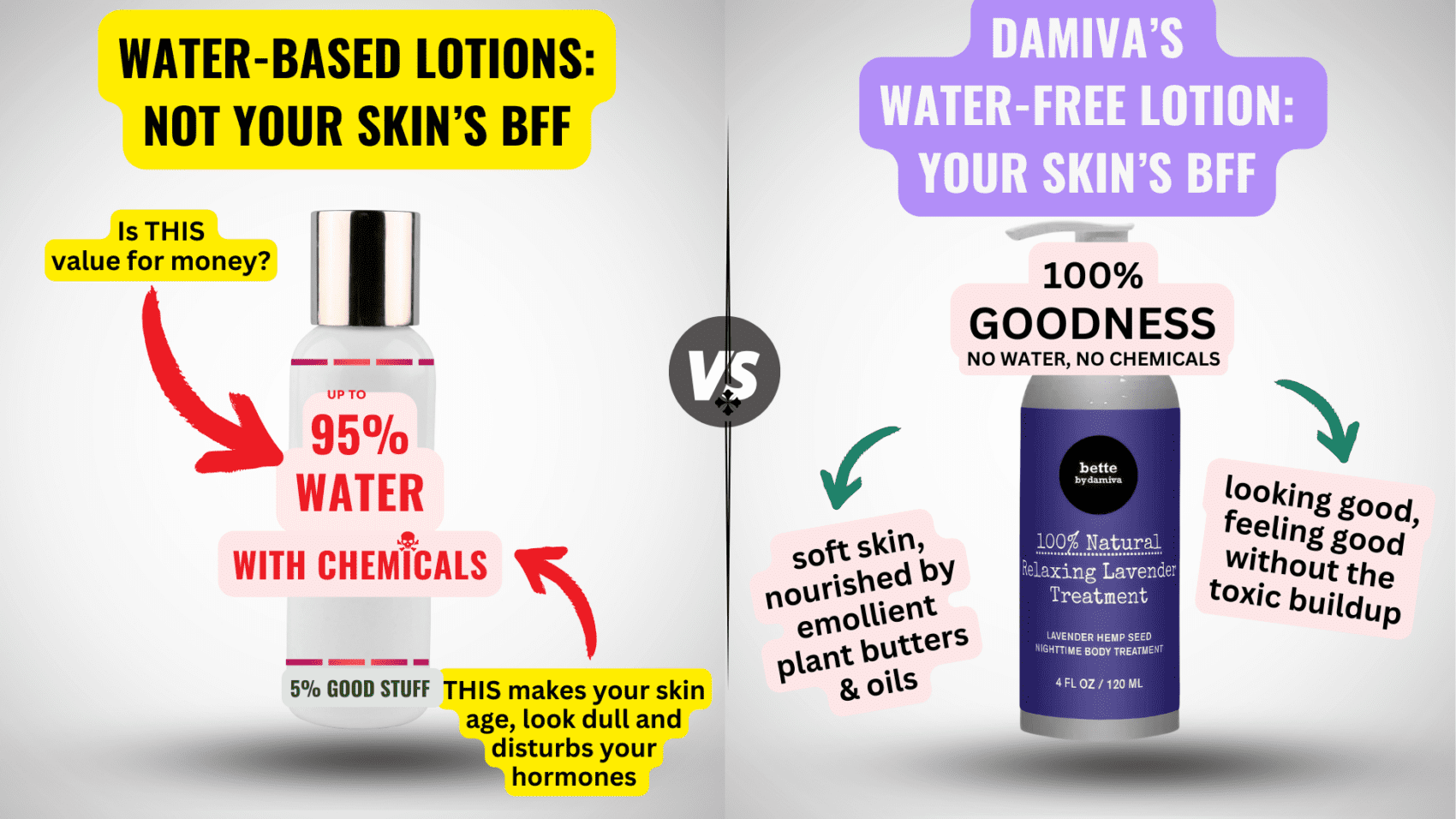Menopause is a natural biological process that marks the end of a woman’s reproductive years. It is officially diagnosed after a woman has gone 12 consecutive months without a menstrual period. Menopause typically occurs between the ages of 45 and 55 but can happen earlier or later. The transition to menopause is divided into three phases: perimenopause, the period leading up to menopause where hormonal fluctuations begin; menopause, the point at which the ovaries cease releasing eggs; and post-menopause, the years following menopause.
Common Misconceptions and Historical Perspectives
Throughout history, menopause has been shrouded in misconceptions. It was once thought to be a sign of hysteria or a condition to be treated with skepticism. Today, we understand menopause as a normal stage of life, yet the stigma persists, often leading to a lack of open discussion and support, particularly in the workplace. This silence can contribute to discrimination and a lack of accommodations for those experiencing menopausal symptoms.
Symptoms and Early Indicators
The onset of menopause can bring a variety of symptoms, which may include hot flashes, night sweats, mood changes, and weight gain. Early indicators often manifest during perimenopause, with changes in menstrual cycle patterns being a common sign. It’s important to recognize these symptoms early on, as they can impact daily life and work performance, necessitating adjustments in both personal and professional spheres.
The Psychological Impact of Hormonal Changes
The hormonal changes of menopause can have a significant psychological impact. Fluctuations in estrogen and progesterone can lead to anxiety, depression, and brain fog. These changes can affect self-esteem and identity, as well as cognitive functions such as memory and concentration. Understanding and acknowledging these psychological effects are crucial for managing menopause effectively and ensuring that women receive the support they need during this transition.
The Transition: Perimenopause to Post-Menopause
Duration and Variability of Perimenopause
Perimenopause marks the transition period leading up to menopause, characterized by hormonal fluctuations and the decline of reproductive function. This phase typically begins between the ages of 45 and 55 and can last anywhere from a few months to over a decade, with an average duration of about seven years. The experience of perimenopause is highly individual, influenced by factors such as genetics, lifestyle, and overall health. During this time, women may notice changes in menstrual patterns, the onset of vasomotor symptoms like hot flashes, and various other physical and emotional signs.
Brain Changes During Menopause
Menopause can bring about significant changes in brain function, often leading to symptoms such as memory lapses, difficulty concentrating, and “brain fog.” These cognitive changes are thought to be linked to fluctuating levels of hormones such as estrogen and progesterone, which play critical roles in brain health. Research indicates that the menopausal transition is associated with alterations in brain structure and function, including changes in the volume of gray matter and white matter hyperintensities, which are early markers of cognitive decline.
The End of Menopause and Brain Recovery
Menopause is officially reached when a woman has not experienced a menstrual period for 12 consecutive months. Post-menopause is the period that follows. Many women report an improvement in menopausal symptoms, including a reduction in hot flashes and stabilization of mood swings. Interestingly, the “brain fog” that often accompanies perimenopause tends to lift, suggesting a degree of cognitive recovery. However, this is not universal, and some women may continue to experience cognitive challenges. It is also during this time that women may be more susceptible to health issues such as osteoporosis and heart disease, making continued health monitoring and preventive care is essential.
Understanding the variability and duration of perimenopause, acknowledging the brain changes that occur during menopause, and recognizing the potential for recovery post-menopause are crucial for navigating this transition effectively. By staying informed and proactive about health during these stages, women can better manage their symptoms and maintain their quality of life.

Embracing Menopause Positively
Reframing Menopause as a Celebration
Menopause, often approached with trepidation, can be a transformative period worthy of celebration. It marks a significant life transition that can empower women to prioritize their well-being and embrace new opportunities. By shifting the narrative from loss to gain, women can recognize menopause as a milestone that brings wisdom, experience, and a renewed sense of self.
Physical and Emotional Liberation
The cessation of menstrual cycles during menopause can be liberating. Women often report a newfound freedom from the inconveniences and discomforts associated with periods. This physical liberation can also spark emotional release, allowing women to explore their identities beyond reproductive capabilities and to focus on personal growth and fulfillment.
The Concept of ‘Menopausal Zest’
Menopausal zest is a term that encapsulates the surge of energy and enthusiasm many women experience. As hormonal fluctuations stabilize, a sense of vitality and eagerness to engage in life’s pleasures and challenges often emerges. This zest can lead to pursuing passions and interests with vigor previously set aside for family or career obligations.
Life Pivots: Career and Relationship Reassessments
Menopause can serve as a catalyst for introspection and life reassessment. Women may feel compelled to pivot in their careers, seeking roles that align more closely with their values and aspirations. Relationships, too, may undergo a reevaluation, with a focus on nurturing connections that offer mutual respect, support, and joy. This period of change is not about decline but about recalibrating life’s priorities to match an evolving sense of self.
Embracing menopause positively is about recognizing the potential for growth and transformation. It’s an opportunity to celebrate change, seek personal liberation, and experience the zest that comes with this new life stage. By reassessing life’s direction, women can make menopause work for them, crafting a fulfilling future that resonates with who they are becoming.

Feeling You Have a Right to Safe Beauty & Fem Care?
If so, it may be time for a change. It starts with knowledge. We have a few suggestions in our new guides.
Addressing Decreased Libido
Identifying Causes of Decreased Libido
Understanding the root causes of decreased libido during menopause is essential for finding effective solutions. The decline in estrogen levels that begins in perimenopause can lead to various physical changes, such as vaginal atrophy and dryness, which can make sex uncomfortable or painful. Psychological factors, including stress, depression, and anxiety, can also contribute to a reduced sex drive. Additionally, other menopausal symptoms like hot flashes, night sweats, and sleep disturbances can further dampen sexual desire. It’s important to recognize that these experiences are common and can be addressed with the right approach.
Treatment Options and Remedies
Several treatment options are available to help manage decreased libido. Hormonal treatments, such as estrogen pills, creams, or vaginal rings, can alleviate vaginal dryness and atrophy. Nonhormonal options like ospemifene are also effective. For those seeking to enhance sexual desire directly, FDA-approved medications like flibanserin and bremelanotide may offer benefits, though they come with potential side effects. Over-the-counter lubricants and moisturizers can provide immediate relief for discomfort during sex. Additionally, lifestyle changes, such as regular exercise and stress reduction techniques, can improve overall well-being and sexual health.
The Role of Counseling
Counseling can play a significant role in addressing decreased libido. Individual therapy can help manage mental health challenges, while couples therapy can assist in addressing relationship issues that may be affecting intimacy. Open communication about sexual needs and desires is crucial, and a counselor can provide a safe space to explore these topics. Moreover, counseling can help individuals and couples navigate the emotional complexities of menopause and rediscover sexual satisfaction.
Communicating with Healthcare Providers
Effective communication with healthcare providers is key to managing decreased libido. It’s important to speak openly about any concerns regarding sexual health and to ask questions about potential treatments. Healthcare providers can offer guidance on medical interventions, suggest lifestyle adjustments, and refer patients to specialists, such as sex therapists, if needed. Remember, sexual health is an important aspect of overall well-being, and seeking help is a proactive step toward maintaining a fulfilling sex life during and after menopause.

THEN IT CONTAINS TOXIC CHEMICALS. WHY RISK IT GETTING SICK? GO CHEMICAL FREE.
Lifestyle Adjustments for Menopause Management
The Importance of Exercise
Regular physical activity is a cornerstone of healthy living, especially during menopause. Exercise helps to combat weight gain, a common concern due to the metabolic slowdown associated with hormonal changes. It also improves cardiovascular health, strengthens bones, and boosts mood. Aim for at least 150 minutes of moderate aerobic activity per week, such as brisk walking or swimming. Additionally, incorporate strength training exercises twice a week to maintain muscle mass and support bone density.
Dietary Considerations and Recommendations
A balanced diet rich in fruits, vegetables, whole grains, and lean proteins can help manage menopausal symptoms. Focus on foods high in calcium and vitamin D to support bone health, as menopause increases the risk of osteoporosis. Phytoestrogens, found in soy products, may also offer some relief from hot flashes. Limit intake of processed foods, caffeine, and alcohol, as these can exacerbate symptoms like hot flashes and poor sleep. Staying hydrated is crucial; drink plenty of water throughout the day to help regulate body temperature and maintain overall health.
Managing Weight and Metabolism
Weight management during menopause can be challenging due to hormonal shifts affecting metabolism. To counteract this, prioritize portion control and choose nutrient-dense foods that provide energy and satiety without excess calories. Regular physical activity, as mentioned earlier, is also vital in maintaining a healthy weight. Monitoring your food intake with a diary or app can help you stay aware of your eating habits and make necessary adjustments.
Stress Reduction and Mental Health
Menopause can be a stressful time, with symptoms like mood swings and anxiety being common. Stress management techniques such as yoga, meditation, or deep-breathing exercises can be beneficial. Cognitive-behavioral therapy (CBT) is another effective tool for managing mood changes and stress. Building a strong social support network, including family, friends, and possibly support groups, can provide emotional support and reduce feelings of isolation. Prioritize self-care and ensure you get adequate rest to help maintain mental well-being.
By making these lifestyle adjustments, you can navigate the challenges of menopause more comfortably and maintain a high quality of life. Remember, every woman’s experience with menopause is unique, and it may take time to find the right combination of strategies that work for you.
By the way, something for you, a little gift!!!
I am just in the middle of publishing my book. It’s about How women can balance their hormones. One part is about food and diet, of course.
Follow this link and enter your email.
I will send you this part of the book for free once the book is published. It has many concrete, practical tips and recipes and will help you feel better during menopause or times of Big hormonal fluctuations.
Annette, Damiva Lead for Health & Wellness

Medical Interventions and Therapies
Hormone Replacement Therapy (HRT)
Hormone Replacement Therapy (HRT) is a widely used treatment for managing the symptoms of menopause and perimenopause. It involves the administration of hormones, primarily estrogen, to alleviate symptoms such as hot flushes, mood swings, and vaginal dryness. Estrogen can be delivered through various methods, including skin patches, gels, sprays, implants, and tablets. For those with a uterus, progesterone is also necessary to protect the endometrial lining from the effects of estrogen, and it can be administered as patches, intrauterine systems (IUS), or tablets. The benefits of HRT extend beyond symptom relief, potentially reducing the risk of osteoporosis and heart disease. However, it is essential to have a thorough discussion with a healthcare provider about the small risks associated with HRT to ensure it is the right choice for an individual’s health needs.
Understanding Testosterone Supplementation
Testosterone supplementation may be recommended for those experiencing a decreased libido that does not improve with standard HRT. Although testosterone is primarily associated with male health, it is also produced by the ovaries and plays a role in female sexual drive and energy levels. Testosterone gel or cream can be prescribed by a specialist after menopause to help restore sex drive. While side effects are uncommon, they can include acne and unwanted hair growth. It is important to handle testosterone treatments with care to prevent transference to others.
Evaluating Risks and Side Effects
When considering any medical intervention, evaluating the potential risks and side effects is crucial. With HRT, the risks are generally small and often outweighed by the benefits. However, it is vital to monitor for side effects such as vaginal bleeding, changes in mood or weight, and blood pressure fluctuations. Regular follow-up appointments with a healthcare provider are necessary to ensure that the treatment remains effective and safe, with adjustments made as needed.
Alternative and Complementary Therapies
For those who cannot or choose not to use HRT, alternative and complementary therapies may be considered. However, caution is advised as the safety and efficacy of treatments like herbal remedies and compounded bioidentical hormones are not well-established. Herbal remedies such as red clover and black cohosh lack strong evidence of effectiveness. Compounded bioidentical hormones, often marketed as “natural” hormones, are not recommended due to uncertainties regarding their safety and effectiveness. It is always best to consult with a healthcare provider before starting any alternative therapies, as they can interact with other medications and cause side effects.
In conclusion, a range of medical interventions and therapies are available to manage menopause symptoms. HRT remains the primary treatment, with testosterone supplementation as an option for decreased libido. It is essential to evaluate the risks and side effects of these treatments and to approach alternative therapies with caution. A healthcare provider can offer guidance tailored to an individual’s specific health profile and needs.
Conclusion: Crafting a Personal Menopause Strategy
Throughout this article, we’ve explored the multifaceted nature of menopause and its impact on women’s lives. Key takeaways include understanding the biological and psychological changes during menopause, recognizing the importance of a supportive network, and the value of lifestyle adjustments and medical interventions. Embracing menopause positively can lead to a renewed sense of self and an opportunity for personal growth. Addressing decreased libido and other symptoms with a combination of treatments and open communication with healthcare providers is crucial for maintaining quality of life.
Developing a Supportive Network
Building a supportive network is essential for navigating menopause successfully. This network can include family, friends, healthcare professionals, and peers going through similar experiences. Online forums and local support groups can provide a platform for sharing experiences and advice. In the workplace, creating a culture of understanding and support can help women manage their symptoms more effectively.
Planning for Long-Term Health and Wellness
Long-term health and wellness during menopause require a proactive approach. Regular exercise, a balanced diet, and stress management techniques can help mitigate menopausal symptoms and reduce the risk of chronic diseases. Regular medical check-ups and screenings are vital for early detection and management of any health issues that may arise during this life stage.
Empowerment Through Education and Advocacy
Education is a powerful tool for empowerment during menopause. Understanding the changes happening in the body can demystify the experience and reduce anxiety. Advocacy for better menopause-related healthcare and workplace policies is also important. Women should feel empowered to speak up about their needs and advocate for changes that will support themselves and others during menopause.
In conclusion, crafting a personal menopause strategy involves a combination of education, support, and proactive health management. By taking control of their menopause journey, women can turn a potentially challenging time into a period of empowerment and well-being.








